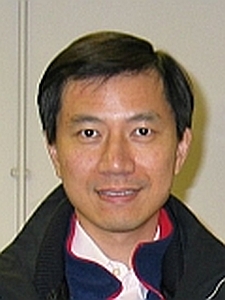A microbiology research group at the University of Hong Kong lost five papers for image duplication in late October, weeks after other scientists published a critique in Retraction Watch of one of the group’s COVID-19 articles.
The paper on COVID-19 was published in Cell in 2021 and was led by Patrick Chiu Yat Woo and Kwok-Yung Yuen, chair of infectious diseases in the university’s Department of Microbiology.
Writing in Retraction Watch in early October, Robert Speth of Nova Southeastern University in Fort Lauderdale, Fla., and Georgetown University in Washington, DC, and Michael Bader of the Max-Delbrück-Center for Molecular Medicine in Berlin, described their experience notifying Cell of numerous errors in the paper, and the journal’s editor refusing to publish a correction.
Weeks later, five of Yuen and Woo’s papers were retracted from two journals published by the American Society for Microbiology:
- “False-Positive Results in a Recombinant Severe Acute Respiratory Syndrome-Associated Coronavirus (SARS-CoV) Nucleocapsid Enzyme-Linked Immunosorbent Assay Due to HCoV-OC43 and HCoV-229E Rectified by Western Blotting with Recombinant SARS-CoV Spike Polypeptide,” Journal of Clinical Microbiology, 2004.
- “Association of Presence of Aspergillus Antibodies with Hemoptysis in Patients with Old Tuberculosis or Bronchiectasis but No Radiologically Visible Mycetoma,” Journal of Clinical Microbiology, 2004.
- “Coexistence of Different Genotypes in the Same Bat and Serological Characterization of Rousettus Bat Coronavirus HKU9 Belonging to a Novel Betacoronavirus Subgroup,” Journal of Virology, 2010.
- “Middle East Respiratory Syndrome Coronavirus 4a Protein Is a Double-Stranded RNA-Binding Protein That Suppresses PACT-Induced Activation of RIG-I and MDA5 in the Innate Antiviral Response,” Journal of Virology, 2014.
- “Discovery of a Novel Bottlenose Dolphin Coronavirus Reveals a Distinct Species of Marine Mammal Coronavirus in Gammacoronavirus,” Journal of Virology, 2014.
The five papers have been cited nearly 400 times in total, according to Clarivate’s Web of Science.
The retractions were spurred by PubPeer comments from sleuth Elisabeth Bik, a familiar name for Retraction Watch readers, pointing out similarities in the papers’ images. The text of the notices was similar. One representative notice stated:
We were alerted that lanes 2 and 6 of Western blot strips in Fig. 2A are more similar than expected on retrospective inspection under magnification. The lapse of 18 years since the publication of this paper made investigation using original research material impossible. We therefore voluntarily take the step of retracting this paper to set the scientific record straight.
In response to our request for comment, Yuen and Woo told us:
We first received notifications on this issue from Pubpeer on 1st August 2022. We immediately proactively reached out to journal editors for their advice on how to set the scientific record straight. Since we no longer had the serum samples to repeat the experiments, we retracted the articles although three of them have been independently confirmed by other research groups. [They later provided these references: Detection and Characterization of New Coronavirus in Bottlenose Dolphin, United States, 2019; A Bat-Derived Putative Cross-Family Recombinant Coronavirus with a Reovirus Gene; and Antagonism of dsRNA-Induced Innate Immune Pathways by NS4a and NS4b Accessory Proteins during MERS Coronavirus Infection.]
We thanks for the comments of our work published in Cell. Their concerns have been addressed and published.
The corresponding author of the MERS paper, Dong-Yan Jin, responded to Bik on PubPeer in November that the authors “admitted that an error was introduced and I take full responsibility for it as corresponding author.” At the end of his comment, he wrote:
The LKS Faculty of Medicine of the University of Hong Kong has set up a panel to investigate this and other papers. The panel found no evidence of fabrication or misconduct from any author. The panel also noted that the main conclusions of the paper were not based on the Western blot data concerned, and thus members were convinced that the conclusions drawn in the paper were valid and credible.
Bik posted a longer response from Jin, which stated that Yuen and Woo “were not involved in preparation of the figure concerned,” and ended:
I apologize to Dr. Yuen, Dr. Woo and other coauthors. It was my supervisory oversight and not theirs in this paper. I feel bad that another co-author’s honest error and my own oversight have resulted in criticism and attack of Dr. Yuen in the media. This is completely unfortunate and unhealthy. It does not help to keep a high standard of responsible science. It is completely unfair, groundless and counterproductive. It will only bring more harms than benefits to science. This has already wasted tremendous amount of energy and resources from different parties. Dr. Yuen’s response to the papers concerned was quick and highly responsible. He has my full respect.
Like Retraction Watch? You can make a tax-deductible contribution to support our work, follow us on Twitter, like us on Facebook, add us to your RSS reader, or subscribe to our daily digest. If you find a retraction that’s not in our database, you can let us know here. For comments or feedback, email us at [email protected].
